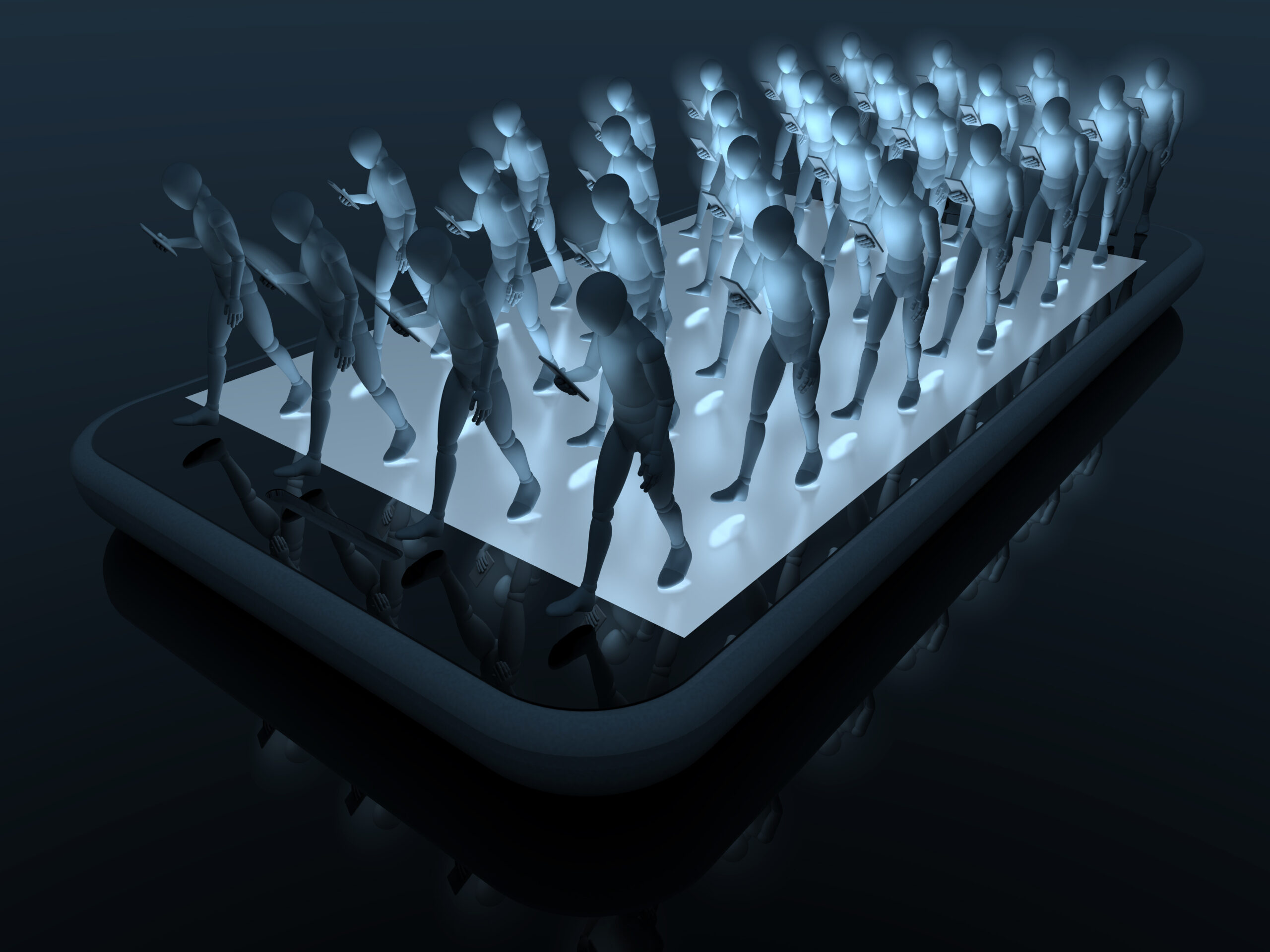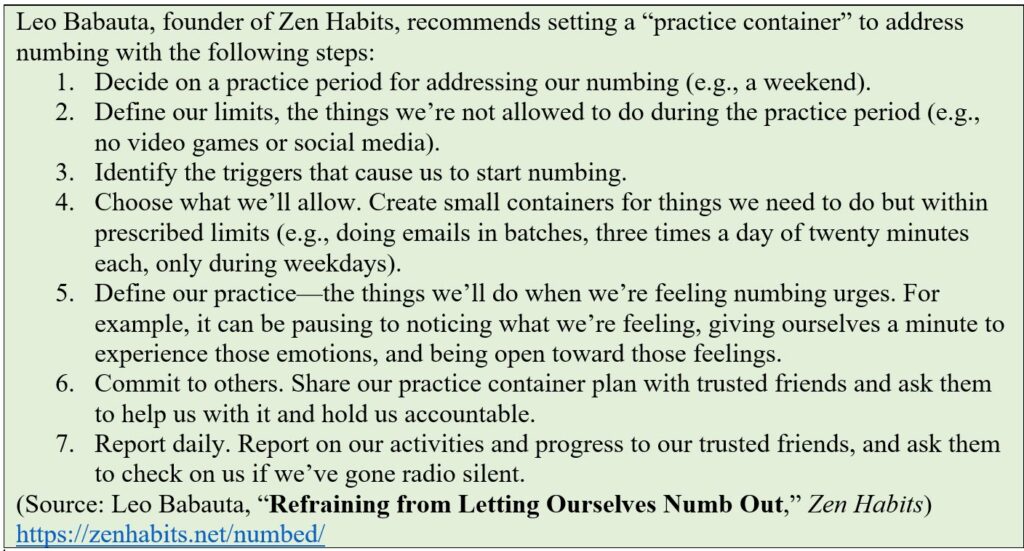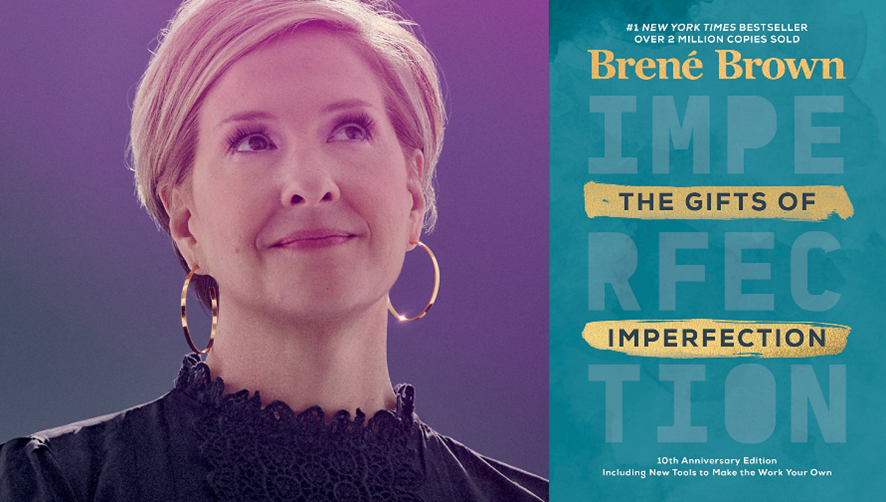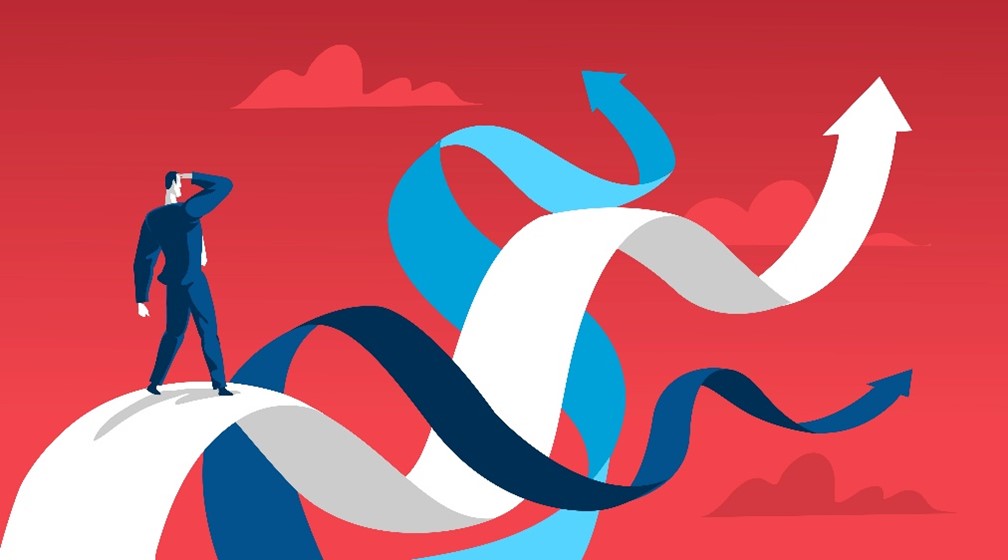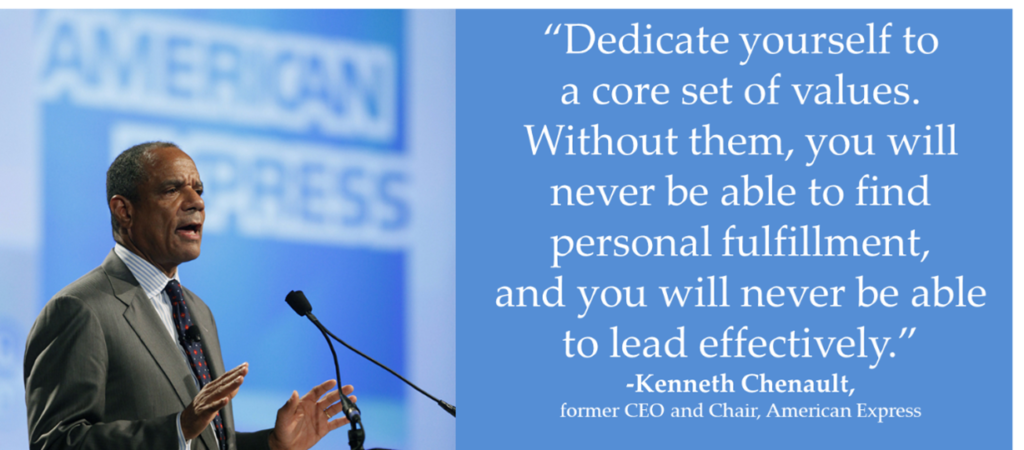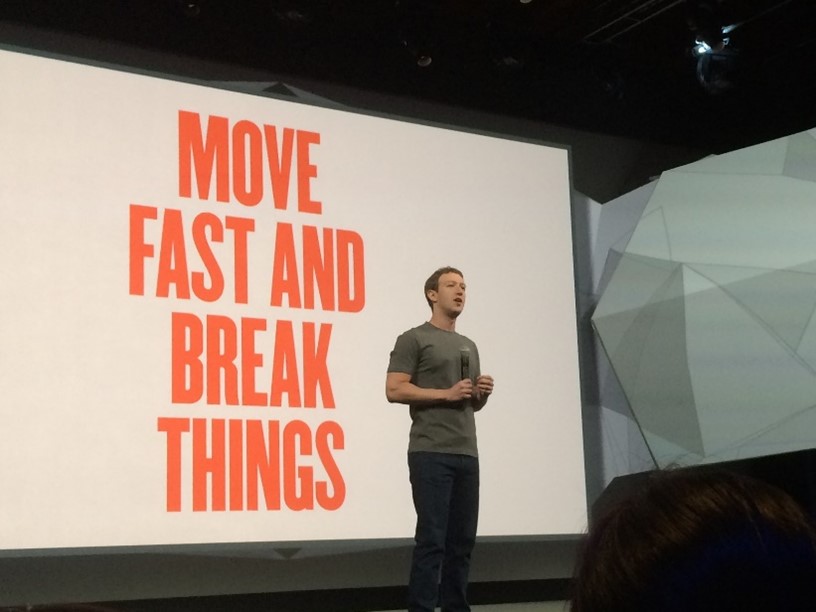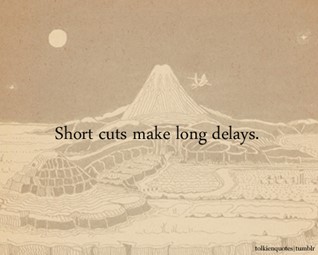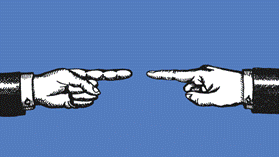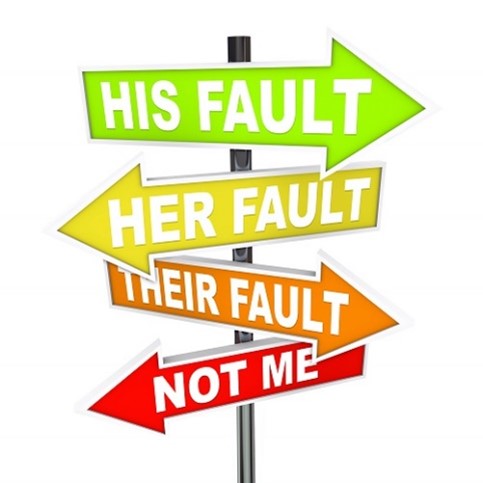One of the most insidious traps that we can fall into these days is numbing—escaping from our thoughts and feelings by doing other things. When we do this, we’re taking the edge off feelings that cause us pain or discomfort. We’re anesthetizing difficult emotions. The problem is compounded by the fact that many families and cultures teach people, either explicitly or implicitly, to suppress their feelings.
We can numb not only with things like alcohol, drugs, or smoking but also with binge-watching shows or doom-scrolling social media. Our numbing might be excessive work and busyness or constant emailing and texting.
“…one of the most universal numbing strategies is what I call crazy-busy….
We are a culture of people who’ve bought into the idea that
if we stay busy enough, the truth of our lives won’t catch up with us.”
-Brene Brown, Daring Greatly
Our numbing can entail shopping, gambling, eating, or sex—or even excessive exercising or cleaning. Some of these, like exercise, can be healthy in moderation but become problematic when done excessively.
Increasingly, we’re seeing what I call “power-numbing”—engaging in several numbing behaviors at the same time, such as drinking, texting, and scrolling while binge-watching. (My friend Renae Jacob calls it “multi-vicing.”)
The point isn’t that we have to stop doing all these things. Some can be done in moderation or even often. The key is choosing which behaviors serve us and not letting ourselves unconsciously numb swaths of our life away. The point isn’t to deprive ourselves of pleasures but rather to stop escaping from our lives.
A key consideration is the severity of the behavior in question. Our numbing behaviors can range from mild or moderate to severe, and at the further end of that spectrum lies addiction.
Addiction and Numbing
In her book, The Gifts of Imperfection, researcher Brene Brown describes addiction as “chronically and compulsively numbing and taking the edge off of feelings.”
According to researchers, having an addiction disorder entails losing our ability to choose freely whether to stop or continue a behavior. An addiction leads to adverse consequences when we engage in it, such as problems with our life or work roles, financial loss, emotional trauma, dangerous situations, or bodily injury or impairment. Meanwhile, when we stop the behavior abruptly, it often leads to irritability, anxiety, feelings of helplessness or hopelessness, or depression.
In essence, addiction is an attempt to use shortcuts to feeling good, but it doesn’t work. Many factors can fuel addictions, including trauma, addictive medications, genetic disposition, sexual and gender stresses, and related disorders that coincide with the addiction.
Unfortunately, addictions are common, and they can lead to other addictions as well. According to the Addiction Center, nearly 21 million Americans have at least one addiction, yet only 10% of them receive treatment.
The National Center for Drug Abuse Statistics reports the following about addiction in the U.S.:
- Of the nearly 140 million people 12 and older who drink alcohol, more than 20% of them suffer from alcohol abuse or addiction
- 25.4% of all users of illicit drugs suffer from drug dependency or addiction
- Drug abuse and addiction cost more than $700 billion annually in healthcare expenses, crime-related costs, and lost workplace productivity
- About half of individuals with a diagnosed mental illness will also struggle with substance abuse at some point in their lives, and vice versa
“…statistics dictate that there are very few people who haven’t been affected by addiction.
I believe we all numb our feelings. We may not do it compulsively or chronically,
which is addiction, but that doesn’t mean that we don’t numb our sense of vulnerability.”
-Brene Brown, Daring Greatly
The problem isn’t confined to substance abuse. Many people are addicted to work. Technology is also a big culprit these days, with giant tech companies creating addictive products and big-data algorithms adept at capturing our attention and rewiring our brains. Think of how quickly we’ve handed over huge chunks of our days—and thus our lives—to devices and screens.
When it comes to smartphones, according to Zippia Research in 2022:
- The average American spends 5 hours and 24 minutes on their mobile device daily
- Americans check their phones 96 times per day, on average (once every ten minutes)
- 47% of people believe they’re addicted to their phones
- 71% of people admit to checking their phone within the first ten minutes of waking up
“Imagine walking into a control room with a bunch of people hunched over a desk with little dials, and that that control room will shape the thoughts and feelings of a billion people. This might sound like science fiction, but this actually exists right now, today…. Right now it’s as if all of our technology is basically only asking our lizard brain what’s the best way to impulsively get you to do the next tiniest thing with your time, instead of asking: in your life, what would be time well spent for you?”
-Tristan Harris, Executive Director, Center for Humane Technology
According to recent research on binge-watching:
- 73% of Americans admit to binge-watching video content
- The average binge lasts three hours and eight minutes
- 90% of millennials and members of Generation Z binge-watch
- 70% of Americans aged between 30 and 44 often binge-watch TV shows or films
- 26% of those aged 18 to 29 binge-watch TV every day
Why We Numb
Numbing behaviors are essentially avoidance mechanisms. There are many factors behind our numbing impulses. Here are 12 common factors:
- pain
- anxiety
- disconnection from others—and its related feelings of loneliness and isolation
- feelings of unworthiness
- discomfort with uncertainty
- stress caused by competing demands on our time
- feelings of emptiness
- the hurt from feeling unseen
- disappointment at ourselves for not being able to handle everything perfectly
- the sense that we’re living a life in which we’re not true to ourselves
- trauma
- abuse
Beneath the discomfort that we’re escaping are fears—fears of failing or struggling or looking bad or feeling unworthy.
We can also have urges to numb if we have a deadening job that’s boring, monotonous, and lacking opportunities for autonomy and initiative—or if our work lacks purpose, connection, or opportunities for development and recognition.
The Problem with Numbing
Numbing is a short-term defense mechanism that can end up making things worse for us. It can lead to financial and health problems as well as fights with loved ones or broken relationships (sometimes because we lash out at others when our pain finally surfaces after being repressed).
When we numb, we may feel flat, both physically and emotionally, and become distant or detached from others, perhaps preferring isolation, which can lead to loneliness and despair. We may lose interest in activities we used to enjoy and stop being present in our own lives. Numbing can also diminish our motivation and creativity.
An unintended side effect of our numbing is that it works in both directions. Numbing difficult emotions such as pain and sorrow also numbs our experiences of happiness and joy.
“We can’t selectively numb emotion. Numb the dark and you numb the light.”
-Brene Brown, Daring Greatly
Also, we may need more and more of the numbing behavior to feel good, setting us up for trouble down the road.
We may not notice that there are also indirect “opportunity costs” of our numbing behaviors—the value of what we could have been doing if we weren’t numbing. Instead of working excessively or binge-watching, what if we were connecting more with loved ones, reading a great book, learning a new language or musical instrument, getting our hands dirty with gardening, visiting new places, gazing at the stars, or reveling in the richness of being alive?
“When we numb, we walk away from ourselves.”
-Andrea Owen, How to Stop Feeling Like Sh*t
What to Do About It
Fortunately, there are many things we can do to reduce our numbing behaviors and mitigate their impacts. Here are many useful approaches:
Recognize that our bodies are trying to speak to us through our emotions. Our emotions can serve an important role as signals or warnings, but only if we pay attention to them. But numbing deprives us of the chance to do so.
Realize that we started numbing for a reason—and reflect to discover what that reason was. Are we feeling overwhelmed at work, or conflicted between our home and work roles, or powerless to help someone we care about?
Notice our numbing behaviors. Be curious about what thoughts and feelings lead to an urge to numb:
Why? Where is it coming from? What are we trying to avoid? What lesson or insight might it hold for us?
In The Gifts of Imperfection, Brene Brown recommends asking if the numbing behavior (e.g., drinking, overworking, etc.) stops us from being emotionally honest, feeling like we’re enough, setting boundaries, and connecting with others. Consider whether we’re using it to escape from our lives.
Name the feelings that cause us to want to numb (e.g., overwhelm, shame, loneliness, despair). Sometimes getting clarity and understanding can open the door not only to relief but also to important insights and hope for improvement.
Take time to feel what we’re feeling—what author Andrea Owen calls “controlled emoting”—and accept our feelings as worthy. Learn how to feel our feelings instead of numbing or dismissing them. Accept ourselves fully without judging ourselves and thinking we’re bad when we have certain thoughts.
Sit with our pain, leaning into it. Connect with it and acknowledge it instead of fleeing it. Though many of us were taught to avoid or suppress emotional pain, that only makes things worse. Our pain is there for a reason, and we can handle it better when we allow ourselves to feel and process it and then, eventually, to let it go as it moves through us.
Talk about our feelings with a trusted friend or trained counselor or therapist. Choose one who can listen attentively and empathetically without trying to fix us. (See the end of this article for a list of support resources.)
Trust that we’ll be okay. Recall all we’ve experienced and overcome in the past.
Take a break from our go-to numbing behaviors, such as social media or streaming shows.
Leo Babauta, founder of Zen Habits, recommends setting a “practice container” to address numbing with the following steps:
Choose to do something productive instead of numbing. Go for a walk to clear our head or try journaling. Choose something we enjoy and that adds value to our lives.
Recognize that the addiction wants us to isolate from others. That’s the worst thing we can do. Numbing behaviors tend to thrive in secrecy, so we must bring them to light.
Pray for help in facing and healing our pain, particularly with chronic numbing behaviors or addictions that feel overwhelming. (For those struggling with addiction, consider support groups such as Alcoholics Anonymous—and see more below—and their guiding principles such as the 12 Steps.)
Serve others, even in small ways. Contributing to others can take us out of a wallowing self-focus and give us a chance to feel good about helping people, even via small acts of support or kindness.
Conclusion
As humans, we all feel pain and discomfort, so it’s understandable that we’re tempted to escape it via numbing. We need to learn, though, that too much numbing makes things worse, not better.
Avoiding gets us nowhere.
Anesthetizing is a temporary salve.
Escaping doesn’t help at all.
Better instead to turn and face the discomfort, listen to what it’s telling us, and do something about it—ideally, with help from others. Going it alone isn’t wise, so we need to get better at asking for help and letting people experience the satisfaction of helping us.
The alternative to numbing is experiencing life more fully and addressing the inevitable challenges we face head-on.
Reflection Questions
- To what extent are you numbing with screens, work, substances, or other escapes from your thoughts and feelings?
- What’s driving those behaviors?
- How will you start to break the cycle?
Tools for You
- Traps Test (Common Traps of Living) to help you identify what’s getting in the way of your happiness and quality of life
- Quality of Life Assessment to help you discover your strongest areas and the areas that need work and then act accordingly
- Personal Values Exercise to help you clarify what’s most important to you
Related Articles
- “What Are You Avoiding?”
- “The Trap of Blaming Others”
- “Burnout and the Great Resignation”
- “The Problem of Going It Alone”
- “Are You Living a Divided Life?”
- “Are You Feeling Empty Inside?”
- “How to Overcome Feelings of Helplessness”
- “The Problem with Neglecting Our Inner Life”
- “Neediness: The Hidden Trap Catching Many High-Achievers”
- “The Mental Prisons We Build for Ourselves”
- “Are You Pretending to Be Something You’re Not?”
- “Breaking the Trance of Unworthiness”
Related Resources
- Video: Johann Hari, “Everything You Think You Know About Addiction Is Wrong” TED talk, June 2015
- Book: Brene Brown, The Gifts of Imperfection
Postscript: Inspirations on Overcoming Numbing
- “A deep sense of love and belonging is an irreducible need of all people. We are biologically, cognitively, physically, and spiritually wired to love, to be loved, and to belong. When those needs are not met, we don’t function as we were meant to. We break. We fall apart. We numb. We ache. We hurt others. We get sick.” -Brene Brown
- “I know from my own clinical work that when people are beaten and hurt, they numb out so that they can’t feel anymore.” -John Bradshaw
- “We must be willing to encounter darkness and despair when they come up and face them, over and over again if need be, without running away or numbing ourselves in the thousands of ways we conjure up to avoid the unavoidable.” -Jon Kabat-Zinn, Wherever You Go There You Are
- “When you’re in survival mode, you numb yourself.” -Clemantine Wamariya
- “I learned to be with myself rather than avoiding myself with limiting habits; I started to be aware of my feelings more, rather than numb them.” -Judith Wright
- “I have come to believe that caring for myself is not self-indulgent. Caring for myself is an act of survival.” -Audre Lorde
- “She goes from one addiction to another. All are ways for her to not feel her feelings.” -Ellen Burstyn, American actress
- “The priority of any addict is to anaesthetize the pain of living to ease the passage of day with some purchased relief.” -Russell Brand
- “Addiction is an adaptation. It’s not you—it’s the cage you live in.” -Johann Hari
- “If you can quit for a day, you can quit for a lifetime.” -Benjamin Alire Sáenz
- “What is addiction, really? It is a sign, a signal, a symptom of distress. It is a language that tells us about a plight that must be understood.” -Alice Miller
- “At first, addiction is maintained by pleasure, but the intensity of the pleasure gradually diminishes and the addiction is then maintained by the avoidance of pain.” -Frank Tallis
- “Drugs take you to hell, disguised as heaven.” -Donald Lyn Frost
- “Addiction, at its worst, is akin to having Stockholm Syndrome. You’re like a hostage who has developed an irrational affection for your captor. They can abuse you, torture you, even threaten to kill you, and you’ll remain inexplicably and disturbingly loyal.” -Anne Clendening
- “Addiction is the only prison where the locks are on the inside.” -unknown
- “Remember just because you hit bottom doesn’t mean you have to stay there.” -Robert Downey, Jr.
- “Never underestimate a recovering addict. We fight for our lives every day in ways most people will never understand.” -unknown
- “…almost everything we think we know about addiction is wrong…. A core part of addiction… is about not being able to bear to be present in your life…. The opposite of addiction is not sobriety. The opposite of addiction is connection.” -Johann Hari in his 2015 TED talk
- “Every addiction arises from an unconscious refusal to face and move through your own pain. Every addiction starts with pain and ends with pain. Whatever the substance you are addicted to—alcohol, food, legal or illegal drugs, or a person—you are using something or somebody to cover up your pain. That is why, after the initial euphoria has passed, there is so much unhappiness, so much pain in intimate relationships. They do not cause pain and unhappiness. They bring out the pain and unhappiness that is already in you.” -Eckhart Tolle, The Power of Now
- “Sometimes the smallest step in the right direction ends up being the biggest step of your life. Tip toe if you must, but take the step.” -Naeem Callaway
Appendix: Support Resources
- Substance Abuse and Mental Health Services Administration (SAMHSA) National Helpline, 800-662-HELP (4357)
- BetterHelp (online network of licensed therapists)
- SonderMind (connecting people with therapists)
- 7cups (a free help network)
- Mental Health Mates (U.K. support groups)
- Befrienders Worldwide (helplines outside the U.S.)
- Alcoholics Anonymous
- Narcotics Anonymous
- 988 Suicide and Crisis Lifeline (text 988 or call 1-888-628-9454)
- Crisis Text Line (text “HOME” to 741741)
++++++++++++++++++++++++++++++
Gregg Vanourek is a writer, teacher, TEDx speaker, and coach on leadership and personal development. He is co-author of three books, including LIFE Entrepreneurs: Ordinary People Creating Extraordinary Lives (a manifesto for integrating our life and work with purpose, passion, and contribution) and Triple Crown Leadership: Building Excellent, Ethical, and Enduring Organizations (a winner of the International Book Awards). Check out his Best Articles or get his monthly newsletter. If you found value in this article, please forward it to a friend. Every little bit helps!

